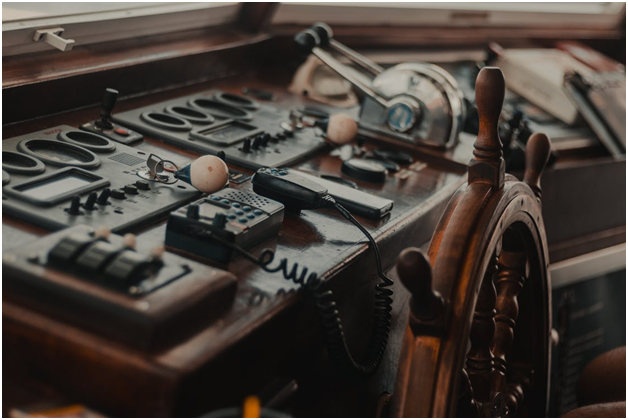Why Does AWG Marine Battery Cable Look Silver?
14th Mar 2022
Anyone who’s ever wired a boat’s battery or even a simple, small bilge pump motor with just two leads probably remembers something interesting about the wiring - it looks silver.
It certainly does, and in a sense, using silver for AWG marine battery cable wouldn’t lack sense entirely. Silver is one of the best metallic electrical conductors in the world. It’s much better, in fact, than copper is, despite the fact that copper is widely used as such.
Interestingly, there are two many reasons that silver is not used for AWG marine battery cable, despite the fact that it looks silvery. Silver is cost-prohibitive to use as a conductor, and highly, highly susceptible to oxidation.
Now, the interesting thing is that it is the latter consideration that has prevented silver from being widely used as an electrical conductor, especially in marine applications. Silver is quick to tarnish, which diminishes its ability to carry a current at a given voltage without overheating. Interestingly, it shares this trait with copper, which is also highly prone to oxidation.
You see, native elemental copper, like native elemental silver, is an excellent electrical conductor. It readily allows a stream of electrons to flow across it, carrying the current without heating up too much.
Copper oxide and silver oxides, by contrast, are not good conductors. Worst of all, the thicker the layer of oxide at the outside of the conductor, the less efficiently the wire can carry a current, and the greater the risk of failure or fire.
So that’s why they’re not made of silver. In fact, AWG marine battery cables are made from copper - typically 100% pure copper conductors - and yet they appear to be silvery - but why?
A Saltwater Environment and the Danger of Corrosion
AWG marine battery cables are silvery because they are coated in tin. In fact, they are not only typically coated in tin, but each individual conductor is given its own coating, fully insulating it from corrosives that would cause oxidation.
The interesting thing is that tin is not entirely immune to corrosion. It is much more corrosion resistant than copper (or silver) for that matter, but it does form a slight film of tin oxide at the surface. However, given its overall low reactivity, this film actually protects the tin from further corrosion, as well as the conductors beneath it. This forms a protective barrier, preventing the tin from continuing to oxidize and effectively insulating the copper beneath from damage.
Consequently, tin-coated copper conductors make superior AWG marine battery cables than those which have no protection against the elements. It’s also the reason that tin-coated wires are basically a standard in the industry. Copper simply oxidizes too quickly and is not well-suited to marine environments. Tin is, and since the wires are exposed at connections, the protection of that tin-coating goes a long way.
This is the reason that marine-grade tinned copper battery cable appears to be silver - to protect it against corrosion.
On the same subject, high-quality wire for marine applications also has an additional layer of protection in the form of highly durable, highly-resistant insulation. For instance, our marine-grade battery wire and cable are resistant to a wide range of environmental stressors, including abrasion, battery acid, oil, gasoline, alkali, and moisture, further protecting the cable assemblies against corrosion and other stressors.

This high level of protection, afforded by the high-quality insulation, helps to further safeguard the efficacy and operation of marine grade battery cables against environmental stressors.
Our marine grade cable is also what’s known as a highly flexible type marine battery cable. It’s made from a very high count of copper-stranded insulators, remaining flexible in both extreme cold and heat.
Even heavy-duty marine battery cable, wire, and accessories must remain very flexible in order to be practical. The interiors of vessels are often very cramped and difficult to navigate. Moreover, boats are subject to constant movement and other stressors. In order for a marine battery cable to be worth its salt (no pun intended) it must be as flexible as possible.
High-Quality AWG Marine Battery Cable Is in Stock
Looking for a high-quality AWG marine battery cable but not sure what size AWG you need to complete a project? Get in touch with us and we’d be happy to help you out.
We also stand fully behind the quality of our electrical wire, cable, and other products, and satisfaction is guaranteed. Our marine grade cables are made in America, UL, United States Coast Guard, and American Boat and Yacht Council Approved for quality, dependability, and longevity.
Don’t game on quality if you need the best marine-grade cable available. If you need a custom cut cable length, get in touch with us at Sales@EWCSWire.com or contact us directly at 800-262-1598 and we’d be happy to help.

